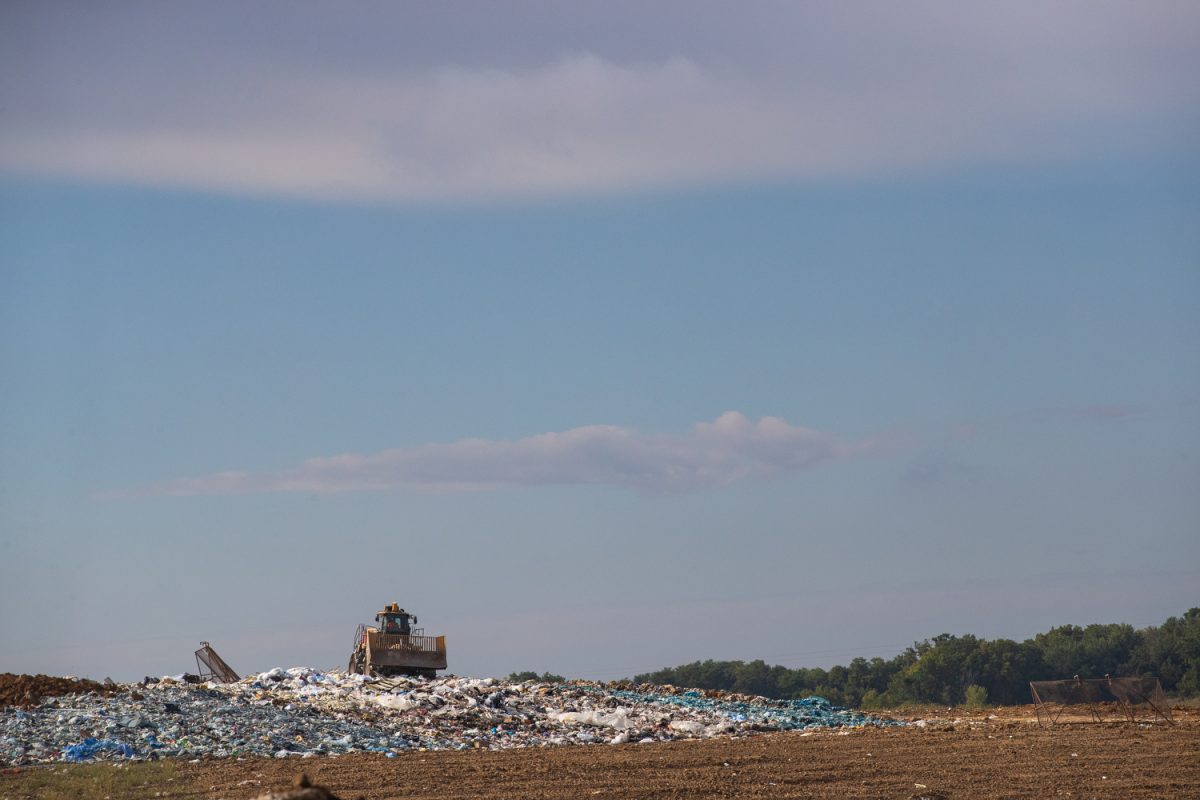Opioids, central nervous system depressants, and stimulants are the top three most misused classes of prescription drugs nationally, according to the National Institute on Drug Abuse.
In light of this, the Iowa City Police Department and the Iowa City Landfill and Recycling Center have collaborated to bring Johnson County residents a collection event to dispose of unwanted and outdated prescription drugs and sharps.
Events like these are organized nationally by the U.S. Drug Enforcement Agency, also known as the DEA, for National Prescription Drug Take Back Day. The localized collection event was held Saturday, Oct. 26, from 10 a.m. to 2 p.m. in the parking lot of the East Side Recycling Center in Iowa City.
Iowa City resident Martha Knight wishes the community had events like this one more than twice a year and that they were better advertised. Knight had only heard of the event by word of mouth, but when she looked it up, she couldn’t find much information about it.
“Events like these are very important. I mean, it came at the right time for me because we’re closing out my mother’s house, so there are a lot of old prescriptions to get rid of,” Knight said.
Prescription Drug Take Back Day is meant to reduce the risk of misuse of prescription drugs. Misuse of prescription drugs has resulted in an increase in emergency room visits, admission for drug use disorder treatment, and overdose deaths in the past 15 years, reported by the National Institute on Drug Abuse.
Improper disposal of sharps can lead to needlestick injuries. If needles are thrown in the garbage at home instead of being dropped off at a designated location in a sharps container or old laundry detergent bottle, waste management employees are at higher risk of being stuck. Needlestick injuries can result in the transmission of infectious diseases ranging from hepatitis B, hepatitis C or HIV.
Resource Management Superintendent for the City of Iowa City Jennifer Jordan expressed how important proper disposal of used needles is, considering multiple employees of the Iowa City landfill have been struck by sharps in the past couple of years.
“It hasn’t happened to me, but for the staff it has happened to, it’s terrifying. There’s a whole series of tests that have to take place. It’s a big deal to make sure that they’re not having long-term impacts on their health,” Jordan said.
The Iowa City landfill cannot accept or discard controlled substances at the hazardous material facility during normal operation hours, but because they are required to have an officer present for the event, Johnson County residents could free their households of said substances.
RELATED: Student-led group confronts drug-use in Iowa City, advocates legalization of syringe services
Iowa City Police Detective Niles Mercer was present at the East Side Recycling Center on Saturday to oversee the collection.
“Every spring and fall, we generally prevent approximately 250 pounds of pharmaceutical waste going to the landfill,” Mercer said.
At the end of the event, Mercer took possession of what was dropped off and ensured the substances would be grouped with other pharmaceuticals to be transported for destruction. In this case, all of the substances collected at the take-back event will be incinerated.
The Iowa City Police Department used to have a secure drop box for disposing of unwanted or expired medications at 410 E Washington St., however, that location is no longer in use. Anyone with unwanted or expired medications can go to the CVS pharmacy at 201 S Clinton St.
Improper disposal of pharmaceuticals by flushing them down a toilet can negatively affect aquatic ecosystems. Marine life can experience detrimental effects on reproduction, growth, and behavior when it is exposed to flushed substances, according to the EPA.
“In Iowa City, we seem to think it’s a young, vibrant community, but really, there’s a lot of elderly people here that require services like this,” Knight said.
Knight also acknowledged that younger residents would have a need to utilize events like these and that health conditions that require injectables affect many people in the state of Iowa.
The EPA estimates each year, eight million people across the country use more than three billion needles, syringes, and lancets to manage medical conditions at home, which makes it difficult for landfills to safeguard what substances and sharps make their way to the landfill properly.
“Make sure that the sharps are properly contained,” Jordan said. “It is a real safety issue.”



